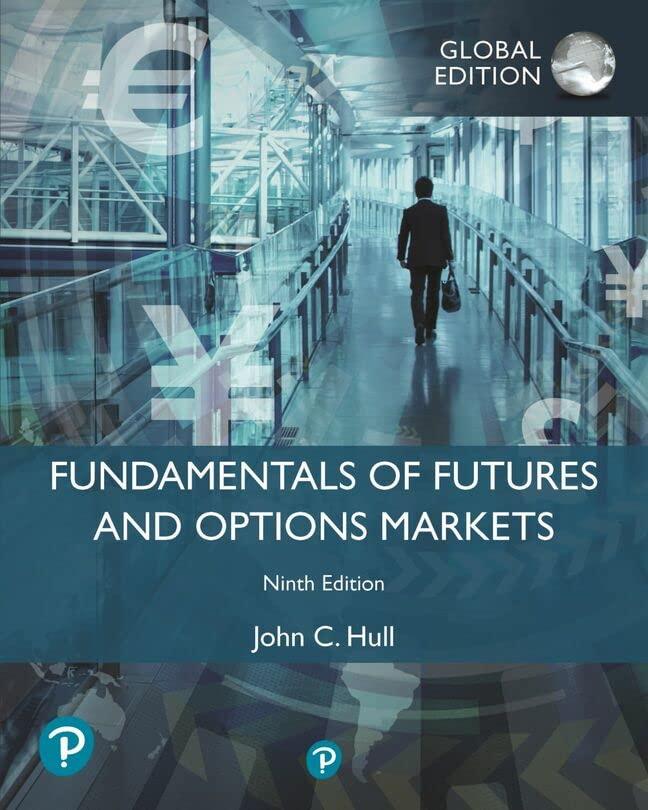Question
Sheaves Corporation economists estimate that a good business environment and a bad business environment are equally likely for the coming year. The managers of Sheaves
| Sheaves Corporation economists estimate that a good business environment and a bad business environment are equally likely for the coming year. The managers of Sheaves must choose between two mutually exclusive projects. Assume that the project Sheaves chooses will be the firms only activity and that the firm will close one year from today. Sheaves is obligated to make a $3,600 payment to bondholders at the end of the year. The projects have the same systematic risk, but different volatilities. Consider the following information pertaining to the two projects: |
| Economy | Probability | Low-Volatility Project Payoff | High-Volatility Project Payoff |
| Bad | .50 | $3,600 | $3,000 |
| Good | .50 | 3,850 | 4,450 |
| a. | What is the expected value of the firm if the low-volatility project is undertaken? What if the high-volatility project is undertaken? (Do not round intermediate calculations and round your answers to the nearest whole dollar amount (e.g., 32).) |
| Expected value of the firm | |
| Low-volatility project value | $ |
| High-volatility project value | $ |
| b. | What is the expected value of the firms equity if the low-volatility project is undertaken? What is it if the high-volatility project is undertaken? (Do not round intermediate calculations and round your answers to the nearest whole dollar amount (e.g., 32).) |
| Expected value of the firm's equity | |
| Low-volatility project value | $ |
| High-volatility project value | $ |
| c. | Which project would the firms stockholders prefer? | ||||
|
| d. | Suppose bondholders are fully aware that stockholders might choose to maximize equity value rather than total firm value and opt for the high-volatility project. To minimize this agency cost, the firm's bondholders decide to use a bond covenant to stipulate that the bondholders can demand a higher payment if the firm chooses to take on the high-volatility project. What payment to bondholders would make stockholders indifferent between the two projects? (Do not round intermediate calculations and round your answers to the nearest whole dollar amount (e.g., 32).) |
| Payment to bondholders | $ |
Sheaves Corporation economists estimate that a good business environment and a bad business environment are equally likely for the coming year. The managers of Sheaves must choose between two mutually exclusive projects. Assume that the project Sheaves chooses will be the firms only activity and that the firm will close one year from today. Sheaves is obligated to make a $3,600 payment to bondholders at the end of the year. The projects have the same systematic risk, but different volatilities. Consider the following information pertaining to the two projects: Economy Probability Low-Volatility Project Payoff High-Volatility Project Payoff Bad .50 $3,600 $3,000 Good .50 3,850 4,450 a. What is the expected value of the firm if the low-volatility project is undertaken? What if the high-volatility project is undertaken? (Do not round intermediate calculations and round your answers to the nearest whole dollar amount (e.g., 32).) Expected value of the firm Low-volatility project value $ 3725 High-volatility project value $ 3725 b. What is the expected value of the firms equity if the low-volatility project is undertaken? What is it if the high-volatility project is undertaken? (Do not round intermediate calculations and round your answers to the nearest whole dollar amount (e.g., 32).) Expected value of the firm's equity Low-volatility project value $ 125 High-volatility project value $ 425 c. Which project would the firms stockholders prefer? High-volatility project Low-volatility project d. Suppose bondholders are fully aware that stockholders might choose to maximize equity value rather than total firm value and opt for the high-volatility project. To minimize this agency cost, the firm's bondholders decide to use a bond covenant to stipulate that the bondholders can demand a higher payment if the firm chooses to take on the high-volatility project. What payment to bondholders would make stockholders indifferent between the two projects? (Do not round intermediate calculations and round your answers to the nearest whole dollar amount (e.g., 32).) Payment to bondholders $
Step by Step Solution
There are 3 Steps involved in it
Step: 1

Get Instant Access to Expert-Tailored Solutions
See step-by-step solutions with expert insights and AI powered tools for academic success
Step: 2

Step: 3

Ace Your Homework with AI
Get the answers you need in no time with our AI-driven, step-by-step assistance
Get Started


